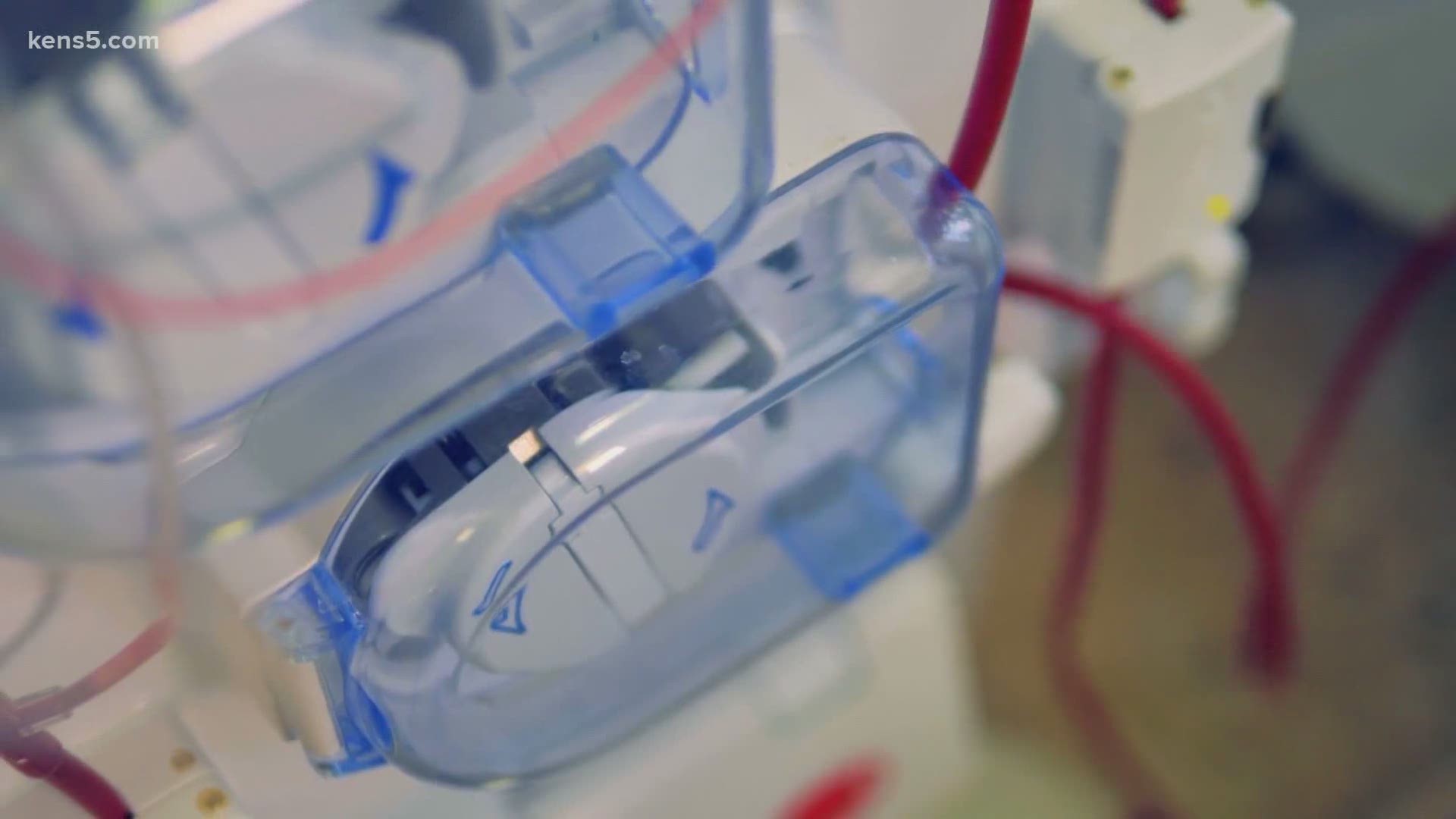SAN ANTONIO — Recovering from the coronavirus is a battle in itself for many patients. But when your immune system is already compromised it is even tougher.
Kidney patients on dialysis have a lot to consider when it comes to coronavirus both at home and when they go to get their treatments.
"If you look at the data currently I do not know any patient in our dialysis unit or in the rest of the city that they got an infection from the dialysis unit," said Dr. Shweta Bansal who is a nephrologist with University Health System and an Associate Professor of Medicine at UT Health San Antonio.
She says even though no dialysis patients have contracted the disease in a unit, they still need to be careful. Dr. Bansal said, "You want to make sure in your unit everyone is wearing masks, your fellow patients sitting four to six feet away from you, on your nursing staff, on your administrative staff, your physicians, they are wearing masks all the time."
Dr. Bansal says diabetes also plays a big role. She added, "Diabetes is very very prevalent in this area which is the biggest risk factor for chronic kidney disease and leading to dialysis."
In the U.S. there are over 500,000 dialysis patients. 46 percent of those patients are on dialysis because of diabetes. 10 percent of all the dialysis patients in the country are found in Texas, where a whopping 75 percent of them are on dialysis because of diabetes. Dr. Bansal also says those patients, especially if they have diabetes, need to be extra careful at home. She told us, "I also understand that it's important to maintain contact for your own mental distress, so having a small outdoor gathering, keeping a distance of 10 feet and wearing a mask is still feasible you can do that that's a low risk practice. I'm not saying it is a zero risk practice but it is a low risk practice if you want to maintain that connection."
Dr. Bansal says if you know of a family member that may have been exposed to the virus, to keep them away from dialysis patients who are more vulnerable to catching the disease.
For more information about family health call 210-358-3045. You can also find the rest of Wear The Gown stories, just go to WearTheGown.com.

